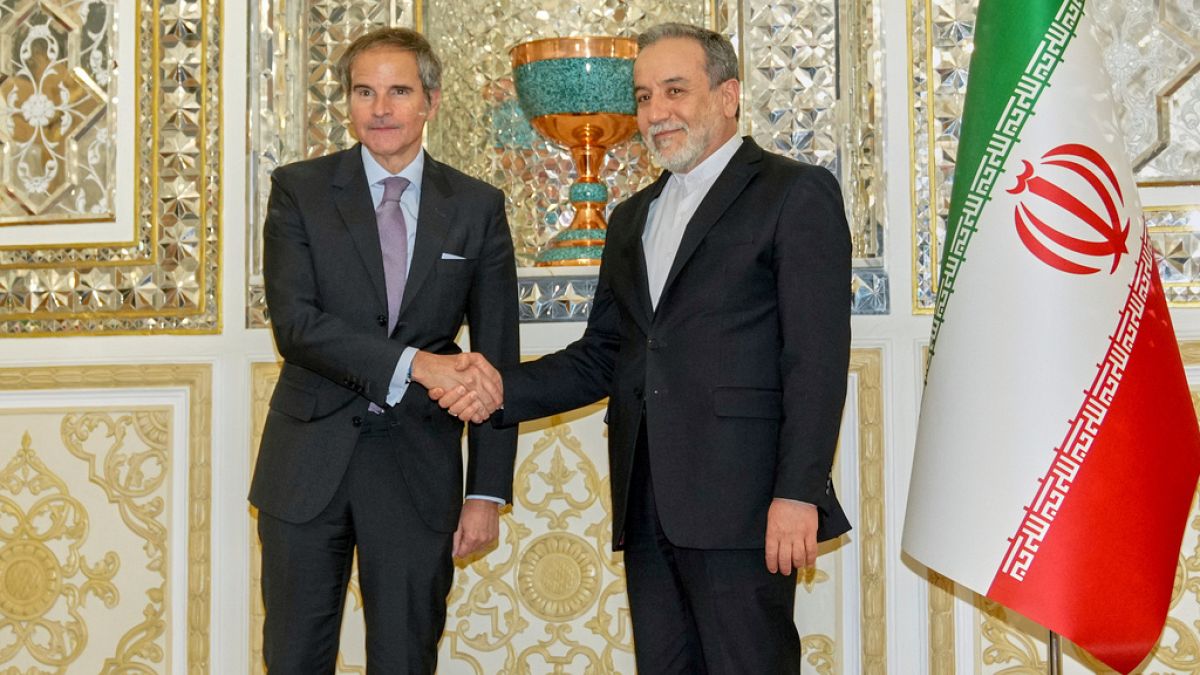Iran may be able to restart its uranium enrichment in a “matter of months”, according to Rafael Grossi, Director General of the United Nations’ International Atomic Energy Agency.
Meanwhile during an interview with FOX News on Sunday US President Donald Trump said sanctions on Iran could be lifted if they agree to move forward in a peaceful manner, “We have the sanctions. But if they do what they have to, if they can be peaceful and if they show us that they won’t do any more damage, I would revoke them, and it would make a big difference,” Trump said.
On 22 June, the United States launched multiple joint attacks with Israel against three of Iran’s nuclear facilities: Fordo, Natanz and Isfahan. Trump had said the facilities were “totally obliterated” and the attacks had set Iran’s nuclear programme back “by decades”.
But Grossi told CBS News on Saturday that “The capacities they have are there. They can have,… in a matter of months, I would say, a few cascades of centrifuges spinning and producing enriched uranium.” Adding, “But as I said, frankly speaking, one cannot claim that everything has disappeared and there is nothing there.”
Different voices on extent of damage caused by strikes
On 25 June, a leaked preliminary Pentagon assessment also found that Iran’s nuclear programme has possibly only been set back by a few months. Following the outing of the report, US President Donald Trump threatened to force journalists to reveal who leaked the report which contradicted his narrative on Iran’s bombing.
Meanwhile in Iran, on the one hand its Supreme Leader Ayatollah Ali Khamenei said the strikes had not achieved anything significant, but on the other, Foreign Minister Abbas Araghchi said “excessive and serious” damage has been done.
International Atomic Energy Agency leader Grossi has enquired to inspect the damaged facilities, however Tehran has rejected the request and on Wednesday voted to suspend its relationship with the IAEA, accusing it of siding with Israel and the US as it did not condemn the attacks on Iran.
But Grossi stays hopeful that the IAEA will be able to rebuild its relationship with Tehran. On Saturday, he said, “I have to sit down with Iran and look into this, because at the end of the day, this whole thing, after the military strikes, we will have to have a long-lasting solution, which cannot be but a diplomatic one.”
In 2015, Iran and world powers reached a nuclear deal that barred Tehran from enriching uranium above 3.67% purity — the limit set for civilian nuclear use — and was banned from conducting enrichment at its Fordo plant until 2030.
Iran, which has always insisted its nuclear programme is peaceful, is a signatory of the Treaty on the Non-Proliferation of Nuclear Weapons (NPT) and is required to submit to IAEA inspections.
But in 2018, Trump retracted the US from the deal, saying it failed to do enough to block Iran’s route to a nuclear weapon, and reinstated American sanctions.
By contrast, Israel is not part of the NPT and while Tel Aviv has never said whether it possesses nuclear arms or not, according to the Stockholm International Peace Research Institute, the country is estimated to have at least 80 nuclear weapons.
Israel began attacking Iran on 13 June, claiming Iran was close to building a nuclear weapon.
Following a 12-day war, Iran and Israel have agreed to a ceasefire, however Trump said he would “absolutely” consider bombing Iran again if intelligence found enough evidence that Iran’s enrichment of uranium rose to worrying levels.

